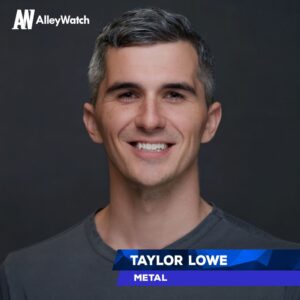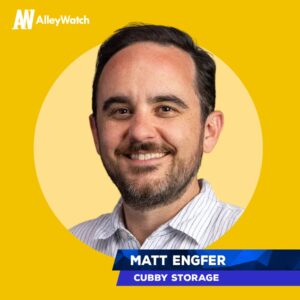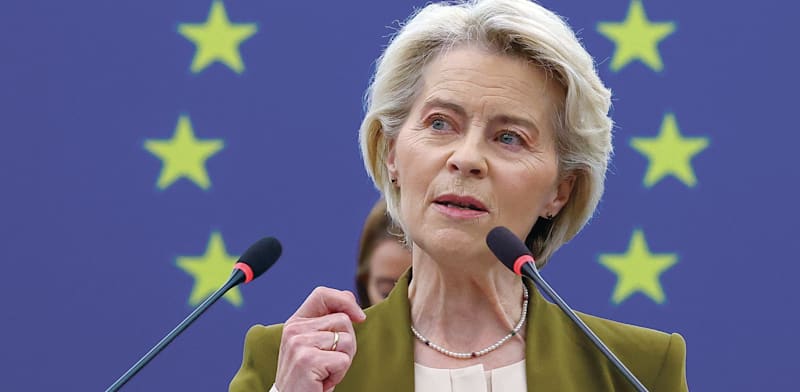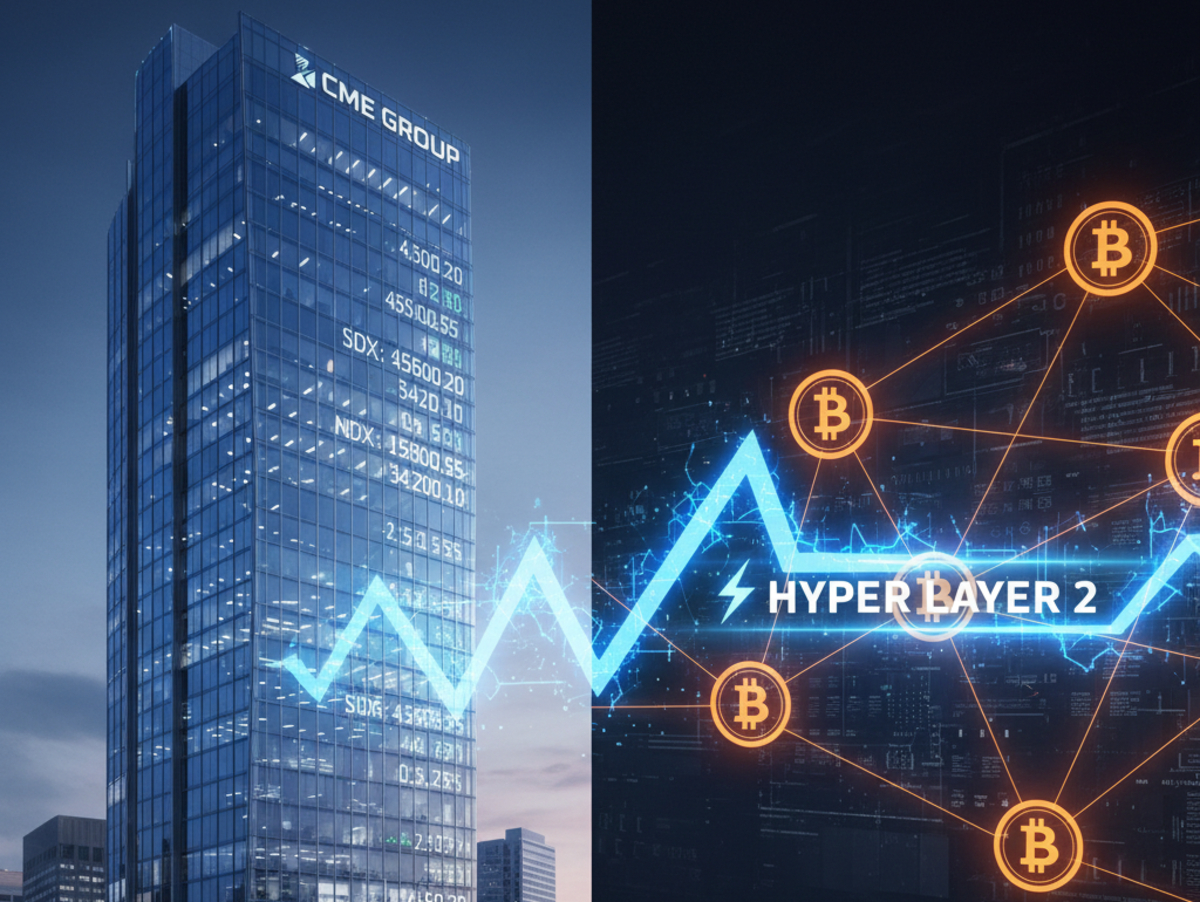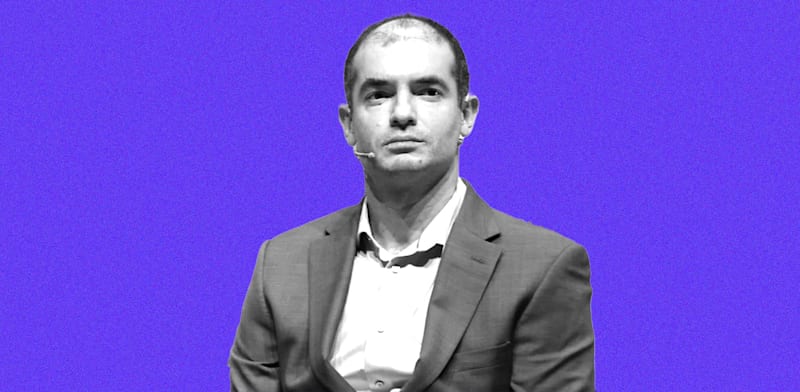Private equity funds manage trillions in assets yet struggle with fragmented data across CRMs, file repositories, and expert networks that prevents teams from accessing critical insights when making investment decisions. This data fragmentation leads to missed signals, duplicated work, and an inability to leverage decades of institutional knowledge effectively. Metal addresses this core challenge with its AI platform that unifies private equity diligence workflows and converts scattered investment data into accessible institutional intelligence. The platform extracts and structures years of fund knowledge, then powers AI-driven workflows that help investors make smarter decisions faster. Metal’s infrastructure-first approach has already enabled customers to increase deal flow by 2-3x without adding headcount and reduce preparation time for key sourcing activities by over 80%. The company recently expanded its capabilities with new integrations and enhanced opportunity scoring features that analyze expert call transcripts and financial data.
AlleyWatch sat down with Metal CEO and Cofounder Taylor Lowe to learn more about the business, its future plans, recent funding round, and much, much more…
Who were your investors and how much did you raise?
We raised a $5M seed round from Base10.
Tell us about the product or service that Metal offers.
Metal is an AI platform for private equity diligence. We help funds transform their collective investment experience and data into a unified system that accelerates investor workflows and surfaces insights across the diligence lifecycle.
What inspired the start of Metal?
My cofounders and I come from an enterprise SaaS background, having built everything from CRMs to data platforms and pipelines. Put simply, our careers have been about turning messy, disjointed data into usable products and APIs.
That experience is why we originally launched Metal as a data processing and infrastructure platform for large language models, before beginning to work with PE in early 2023. Almost immediately, we recognized that PE’s core challenge is fundamentally a data problem: critical information is siloed across CRMs, file repositories, and local storage–preventing deal teams from focusing on their most impactful work.
This is the type of problem we’ve solved our entire careers. And we saw that private equity, despite its scale and influence, has been a historically underserved segment of the market.
Our background has shaped our approach: building a truly differentiated platform for private markets isn’t about small efficiency gains. It’s about connecting the dots across a fund’s entire history. The only way to do that right is with an infrastructure-first, data-first mindset. That’s why Metal begins with the data–extracting and structuring a firm’s knowledge over time, and then using that foundation to power workflows across the platform.
How is Metal different?
Metal is unique in its infrastructure-first approach. We’ve long believed that true differentiation in this market doesn’t come from efficiency gains alone, but from unlocking insights that help investors make smarter decisions. AI is a powerful technology, but it has real limitations–especially when applied to decades of complex, unstructured data. To meet this need, we can’t just build a great application–but we need to power the application with world-class extraction, structuring, and storage of massive volumes of data as the foundation for AI-driven workflows.
This infrastructure-first strategy is already driving results. Metal customers have increased deal flow by 2–3x without adding headcount, and reduced preparation time for key sourcing activities–such as conference prep–by more than 80% – and we know this is only the beginning.
What market does Metal target and how big is it?
Our current focus is private equity, a $2B wedge into the broader private capital ecosystem. But our vision for Metal is much bigger: the infrastructure layer for private market data. Over time, our platform extends beyond diligence into middle and back-office workflows, and across strategies like private credit, secondaries, and beyond. The true scale of this opportunity is difficult to capture with traditional market sizing because AI is reshaping category boundaries – blending what were once distinct areas of enterprise software into a unified data and workflow layer.
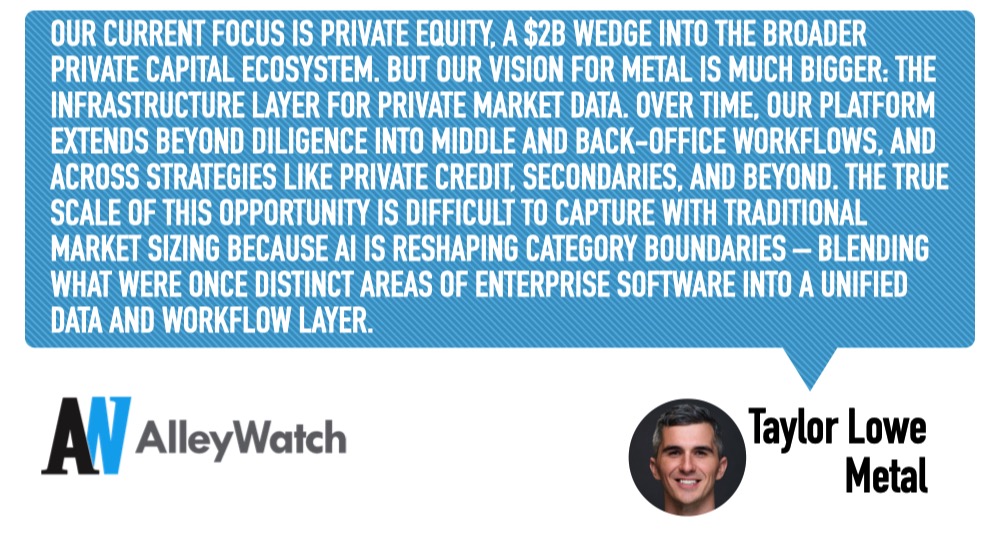
What’s your business model?
Per-seat SaaS with a consumption model for data volumes depending on each implementation.
How are you preparing for a potential economic slowdown?
In economic downturns, funds typically adopt more conservative postures, emphasizing defensive strategies and increasing scrutiny during diligence. In this environment, Metal’s aggregated knowledge of a fund’s investment history becomes especially valuable–providing investors with instant access to prior deals, research, and outcomes that can guide decision-making and reduce risk during periods of uncertainty.
What was the funding process like?
Fundraising is always a gauntlet, but in our case the process wrapped in just ~30 days. We were fortunate to connect with the incredible team at Base10, who immediately understood the problems we’re tackling in detail. Our lead investor’s experience at a PE fund gave them firsthand insight into the pain points we’re solving, which made the decision easy for both parties. Beyond Base10’s stellar reputation, we’ve gained a true domain expert alongside the capital–a combination that positions us to accelerate toward our next milestone.
What are the biggest challenges that you faced while raising capital?
As a founder, the biggest challenge is time management. The business doesn’t pause just because you’re fundraising, so your ability to prioritize and do more with less will be tested. There’s no way around it – if you’re preparing to raise, make sure you’re ready and that your team has coverage across the organization to account for your split focus.
What factors about your business led your investors to write the check?
Our lead investor had personally experienced the very problems we’re solving–and immediately recognized the uniqueness of our approach. At its core, this is a data problem: fragmented information spread across countless systems of record and knowledge. Metal is addressing it from the infrastructure layer up, and that strategy strongly resonated with the team at Base10.
Where do you see the company going now over the near term?
We hit our annual growth target by summer, so we’re now recalibrating to see how far we can push by year-end. While the goalposts for our next fundraise have moved higher, our focus remains the same: building the best product possible and deepening our differentiation in the market.
What’s your favorite fall destination in and around the city?
Domino Park right outside our office! Especially before the weather gets too cold, it’s a great place to get some air and get out from behind a screen.


